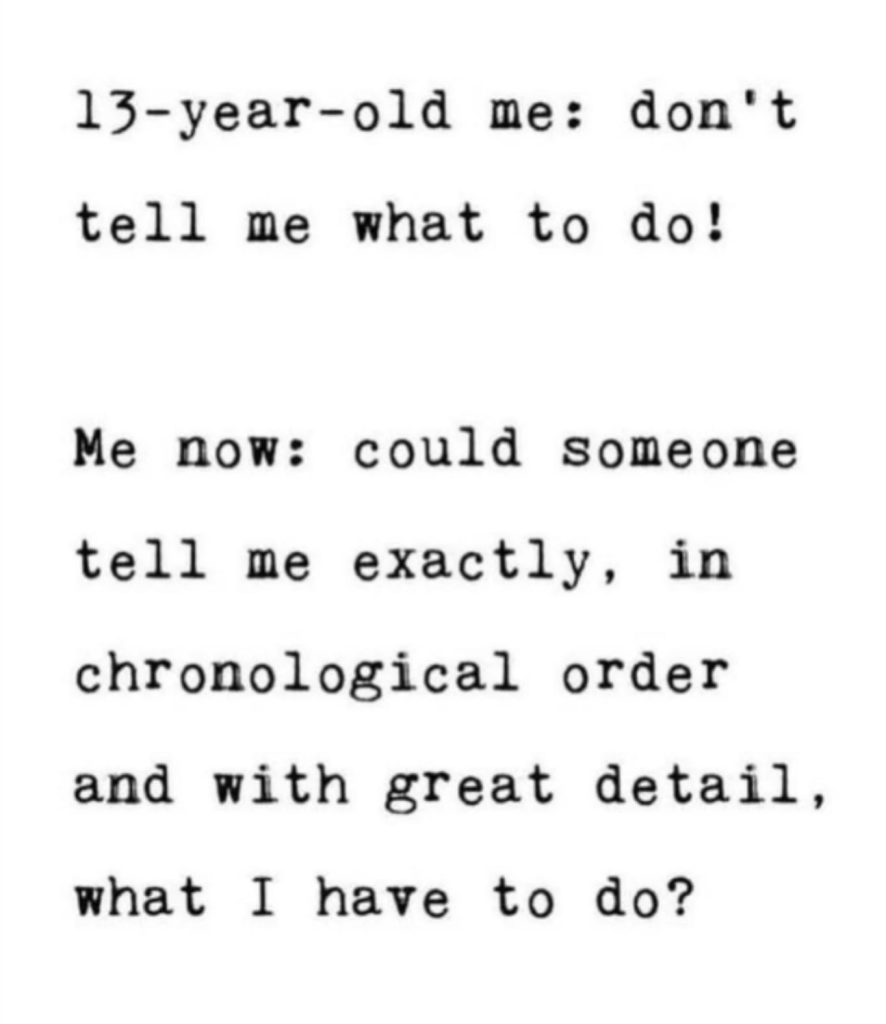… as the Glass Animals album cover goes (I’m not Glass Animals fanatic, just enough trivia has rubbed off from my partner’s die-hard dedication – I am yet to observe the same phenomenon with American Football). I’m told that each of the eleven songs on the album represent a story based on a different person that the group met while on tour.
Each of us (whether we made it to the album cover or not) – depending on our age and the speed at which we iterate through the roads and diversions of life – have been any number of different people, and each of those people would have answered the question of “how to be a human being” differently.
When I was about 13, I vividly remember sitting in an airport with a childhood friend, discussing our life goals, as thirteen-year-olds are wont to do. I stated that I wanted to be successful. My friend shrugged in response and said “I just want to be happy”. Even at the time, I both struggled to understand that goal, and also yearned to want it to. Fifteen years later, I feel the same way. That was one of my earliest answers to the question “how to be a human being”.

The nature of this question depends on what you consider to be the most important components of being human (e.g. to be morally sound, to make a contribution with your career, to be a parent), and, the privilege of choice one has in their lives (e.g. whether you have the option to choose between career paths or jobs). Where does the need to know the answer come from? Are we attached, to different degrees, to committing to the “one and only best ever or perfect” way to be a human being? Have we been taught that we cannot trust our intuition and those of our trusted advisors to move in a good enough direction each time we have the opportunity to change our daily behavior or life path? Are we afraid of the implications of taking the “wrong” direction? Has the capacity granted upon us by evolution to imagine innumerable possible scenarios induced an analysis paralysis in which we are trying to optimally navigate to the “one and only best or perfect” way … to be human being.
I dunno, I’m just asking.
People often look the rules and regulations provided by religion. The 10 Commandments, Cardinal Virtues, and Seven Deadly Sins constitute one succinct version of how-to-be-a-human-being guide, and I’m guessing that counterparts (probably listing the same general notions, give or take the owning of the wives as property) exist for other religious lineages. Some people look to norms and expectations supplied by the communities they grew up in. Others fixate on a metric to quantify their success as a human being (e.g. accumulation of wealth) and optimize their existence around that metric. All of these examples involve reducing that question: “How should I show up in this world?” to something simpler, more tangible, with a benchmark of rules they can adhere to. Furthermore, they are all motivated by “carrot and stick” accountability paradigms – you do well, you go to heaven/achieve higher status in the community/get rich. You f**k up, you go to hell/are disparaged by your peers/exist in perpetual penury.
This is not how children move through the world, nor is it how my childhood friend did. Children – before they learn that there are rules, norms, expectations, and metrics to value your existence by – pursue curiosity rather than militant adherence to the “right” thing to do. Children don’t understand the concepts of winning or losing, being a “good” or “bad” human being. When they fall, they cry and fell sorry for themselves, and they get up and carry on with their day. Rather than shaming themselves for not having behaved correctly, they possess a natural self-compassion the rest of us have to relearn later. We adults have learned to prioritize militancy over curiosity; self-flagellation over compassion; and to be ashamed of yourself when you deem yourself as having failed at being human. No wonder we chronically and deleteriously numb our feelings.
I suspect, that there is no one book, no one metric, no one community, that can coach any individual on the art of being a human being because existing is not a game you win or lose at. You just exist, as does a bear, or a fox, or a bird. You can throw out the carrot and the stick and just experiment with different ways of behaving. You can take actions that induce good feelings amongst yourself and your peers and learn to do that again. You can take actions that hurt the community and learn to stop doing that.
I wish for us to broaden our line of sight beyond the parts of us that are hell- or heaven-worthy as dictated by some book, or set of norms, or wealth and power, to employing curiosity and compassion in pursuit of “just being happy” like my airport friend.
Leave a Reply